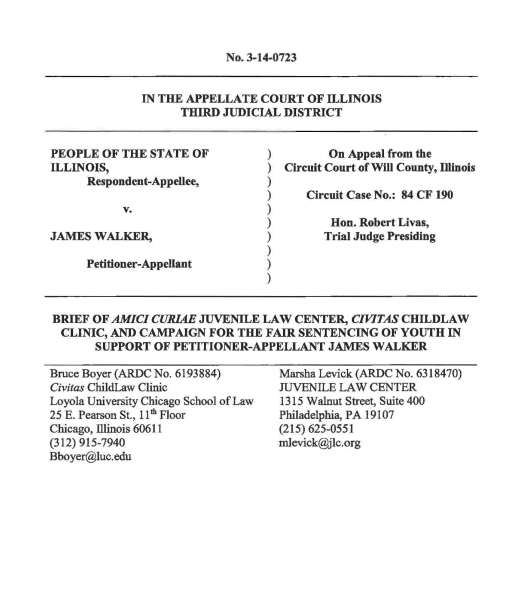
Summary of Argument
U.S. Supreme Court precedent establishes that children are fundamentally different from adults and categorically less deserving of the harshest fonns of punishment. Most recently, in Miller v. Alabama, 132 S. Ct. 2455 (2012), the Supreme Court established a presumption against imposing life without parole sentences on juvenile homicide offenders. Miller further requires that, prior to imposing a life without parole sentence on a juvenile offender, the sentencer must examine factors that relate to the youth's diminished culpability and heightened capacity for rehabilitation. Though Miller involved a mandatory life without parole sentence, its holding that juvenile offenders facing juvenile life without parole are entitled to individualized sentencing hearings in which their age and related characteristics are considered applies in discretionary sentencing cases as well. Because Mr. Walker did not receive a sentencing bearing in which his age and related characteristics were considered, his sentence should be vacated. Moreover, this Court must provide guidance to ensure that juvenile life without parole sentences, if imposed at all, are not imposed in an arbitrary and capricious manner.